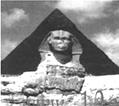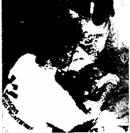题目内容
 Howard Carter was a famous explorer(探险家).He loved to visit new places. During his life, he discovered many important and exciting things.
Howard Carter was a famous explorer(探险家).He loved to visit new places. During his life, he discovered many important and exciting things.Howard Carter did not go to school. But he was smart and wanted to learn the world outside his hometown. In 1891,at the age of 17,he went to Egypt(埃及) by ship. By the 1920s,he had become an explorer, looking for the tombs(坟墓) of the Egyptian kings.
He found several important ones. Inside the tombs, he found jewels, gold and 10 bodies of dead kings. These bodies are known as mummies(木乃伊).In 1922,Howard Carter made his most important discovery of all. When Carter’s team was working at a place near a city called Luxor, they found the tomb of King Tutankhamun.
Not long after the tomb was opened, people in Carter’s team began to get ill and die strangely.
Within seven years,21 people who had something to do with the opening of the tomb died However, Howard Carter lived on and died at the age of 65.
小题1: Howard Carter liked to visit new places.
小题2:Howard Carter was born in 1877.
小题3:Carter’s team found the tomb of King Tutankhamun in 1922.
小题4:The passage tells us Carter’s school life.
小题1:T
小题1:F
小题1:T
小题1:F
【主旨大意】本文介绍了探险家Howard Carter探险坟墓的人生经历。
小题1: 细节题 由第一段第二句“He loved to visit new places.”可知。
小题1: 细节题 由第二段“In 1891,at the age of 17”可以算得出他的出生时间。
小题1: 细节题 由第三段最后一句“In 1922,Howard Carter made his most important discovery of all. When Carter’s team was working at a place near a city called Luxor, they found the tomb of King Tutankhamun.”可知。
小题1: 细节题/主旨大意题 由第二段第一句“Howard Carter did not go to school.”可知。
小题1: 细节题 由第一段第二句“He loved to visit new places.”可知。
小题1: 细节题 由第二段“In 1891,at the age of 17”可以算得出他的出生时间。
小题1: 细节题 由第三段最后一句“In 1922,Howard Carter made his most important discovery of all. When Carter’s team was working at a place near a city called Luxor, they found the tomb of King Tutankhamun.”可知。
小题1: 细节题/主旨大意题 由第二段第一句“Howard Carter did not go to school.”可知。

练习册系列答案
 口算能手系列答案
口算能手系列答案
相关题目
 tory mainly tell us about?
tory mainly tell us about? are much newer.
are much newer. you are looking up at the sky on a clear night and you see a sudden flash of light, it is probably a shooting star! Seeing one doesn’t happen very often. The saying goes that if you see one you have been very lucky, and so if you make a wish, it will come true.
you are looking up at the sky on a clear night and you see a sudden flash of light, it is probably a shooting star! Seeing one doesn’t happen very often. The saying goes that if you see one you have been very lucky, and so if you make a wish, it will come true.
 Doctors Without Borders (国界)
Doctors Without Borders (国界) y works in an office for a large organization. However, Chris' job can be just as exciting and dangerous as being an explorer.
y works in an office for a large organization. However, Chris' job can be just as exciting and dangerous as being an explorer. , such as an earthquake.
, such as an earthquake. ograms to help people.
ograms to help people.